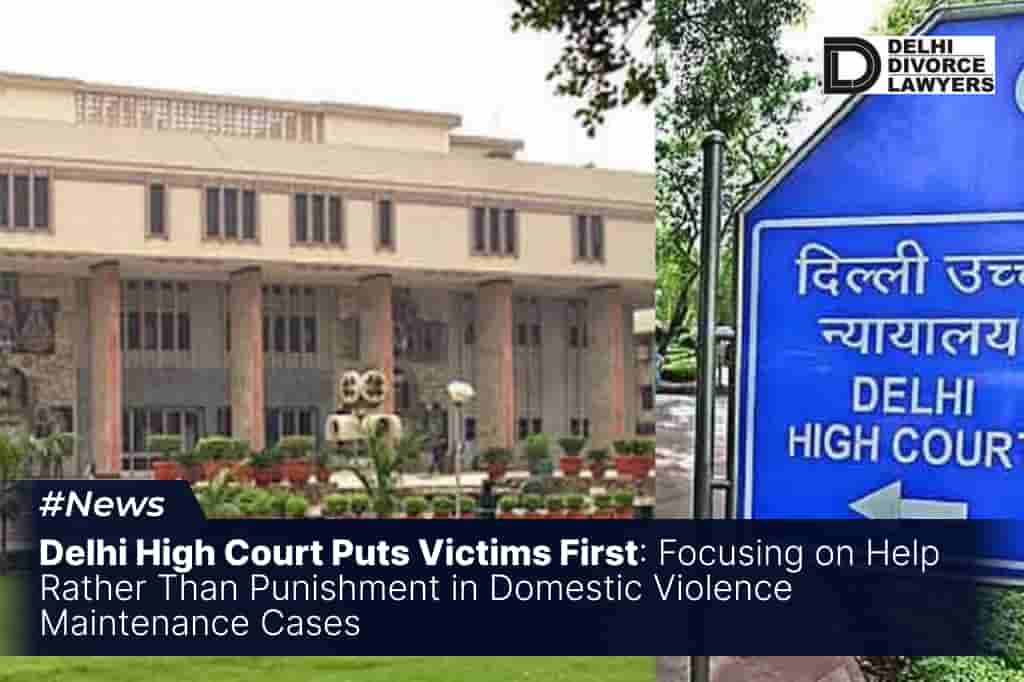The Court has held that persons cannot be summoned by a trial court under Section 31 of the DV Act for a failure to pay maintenance ordered by the court under Section 20 of the Act.
The Delhi High Court has expounded upon the predominant objective inherent in maintenance proceedings pursuant to the Protection of Women from Domestic Violence Act (DV Act). It underscores the primary purpose of ameliorating the circumstances of victims of domestic violence, prioritizing remedial support over punitive measures directed at defaulters in adherence to payment obligations. This explication coincided with a judicial pronouncement affirming the preclusion of legal summonses under Section 31 of the DV Act for non-compliance with maintenance orders stipulated under Section 20 of the Act.
Justice Swarana Kanta Sharma provided further elucidation by delineating the categorical differentiation. Section 31, according to Justice Sharma, is explicitly germane to transgressions of “protection orders,” constituting a discrete category divergent from the pecuniary dimension intrinsic to the maintenance regimen articulated in Section 20 of the Act.
“Court is of the view that a person cannot be summoned (by a criminal court) under Section 31 of PWDV Act for non-compliance of monetary order such as order for payment of maintenance passed under Section 20 of PWDV Act,” the Court proceeded to conclude.
Crucially, the judge also remarked that the primary objective of the DV Act is not immediate imprisonment for individuals who fall short in fulfilling their maintenance obligations.
“The aim of the Act was, therefore, to provide for protection, rehabilitation and upliftment of victims of domestic violence, in contrast to sending the aggressor to prisons. In other words, the purpose behind enforcement of monetary orders would be to provide monetary sustenance to the victim, and not the incarceration of the aggressor. The idea is not to immediately initiate criminal proceedings against the aggressor i.e. respondent as defined in the Act for non-payment of maintenance and to send such person to prison forthwith,“ the order stated.
The court elaborated on the available procedural remedies under the Domestic Violence (DV) Act to address instances of non-compliance with financial relief or maintenance obligations. Notably, individuals with regular income or outstanding debts were advised to seek redress through their employer or debtor, in accordance with the court’s clarification. In cases outside these parameters, aggrieved parties were directed to pursue remedies outlined in the Code of Criminal Procedure (CrPC).
Subsequently, the court overturned a directive issued by an additional sessions judge in March 2019, which summoned a petitioner under Section 31(1) of the DV Act for purportedly failing to fulfill interim maintenance obligations to his estranged wife. The petitioner, previously involved in a dowry harassment case initiated by his wife in 2016, was later obligated to provide financial support to his wife and daughter under the DV Act. Legal recourse was sought after the wife alleged non-compliance.
The petitioner challenged the summons before the Delhi High Court, arguing that Section 31 was not applicable to grievances related to non-compliance with orders for interim maintenance under Section 20 of the DV Act. Stressing that Section 31 solely addresses violations of protection orders and not infractions pertaining to financial reliefs, the petitioner presented his legal stance.
In contrast, the wife asserted the validity of the summoning order, highlighting the petitioner’s non-compliance with maintenance orders. However, the High Court sided with the petitioner, stating that non-compliance with orders for financial relief falls under the purview of Section 20(6) of the DV Act and relevant CrPC provisions. The Court clarified that Section 31 specifically deals with breaches of protection orders and does not encompass violations linked to maintenance or financial relief orders. Consequently, the High Court granted the petitioner’s plea, thereby nullifying the trial court’s order summoning him under Section 31 of the DV Act.

